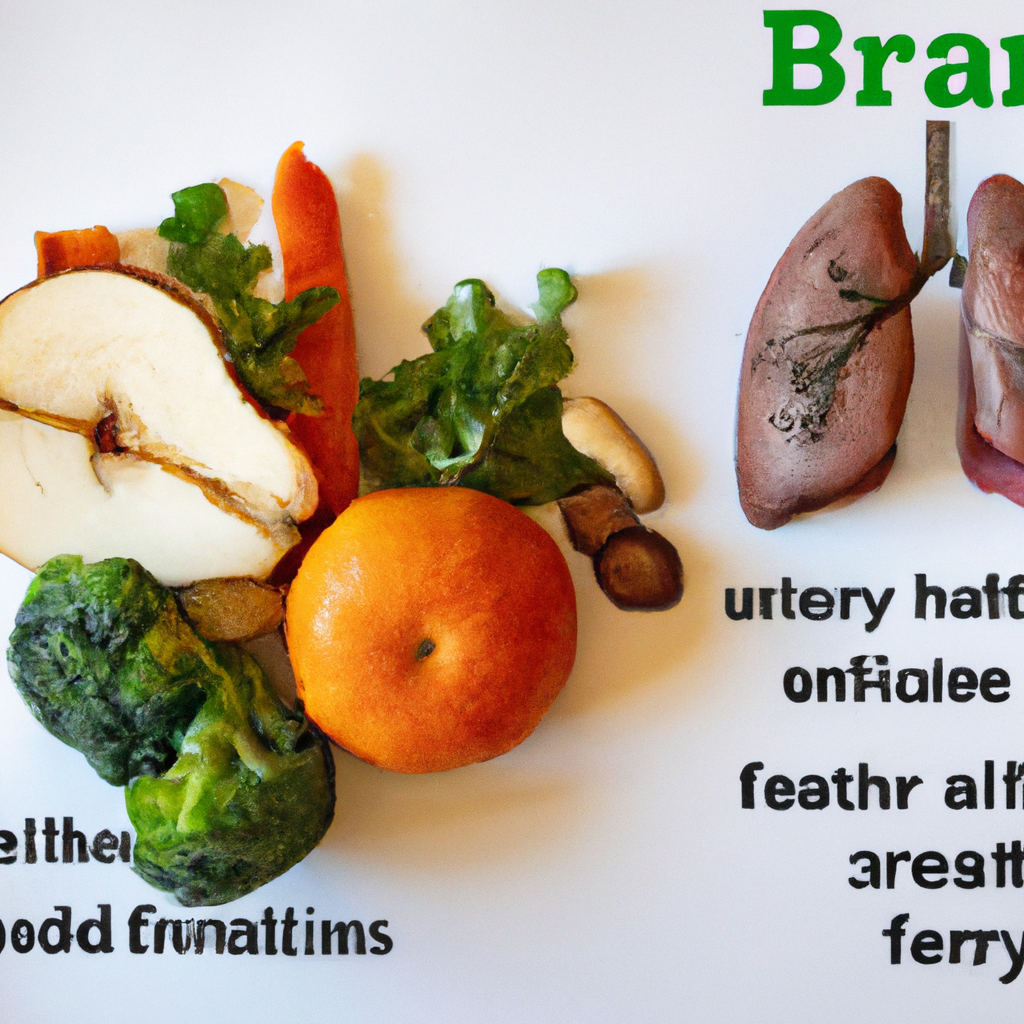If you’re looking to support your respiratory health, you may be surprised to know that there are certain foods that can benefit your lungs. Eating the right meals and snacks can help to keep your lungs in great shape. Keep reading to learn more about how nutrition and respiratory health are linked, and which foods can help to support your lungs.
1. Nourishing Your Respiratory System: The Power of Food
Eating the right foods can be integral to the health of your respiratory system. With delicious and nutritious options, nourishing your respiratory system doesn’t have to be a difficult task. Here are some of the best options for maintaining a healthy respiratory system:
- Garlic – Garlic plays a major role in helping to fight off respiratory infections and colds. In addition, it can effectively deter irritants like pollen from entering the lungs.
- Fresh Fruits & Veggies – Eating plenty of fresh fruits and vegetables can help bolster your lungs and increase their ability to fight off airborne irritants. Vitamin C-rich items like oranges and grapefruits are especially beneficial.
- Seafood – Filled with omega-3 fatty acids and other vital nutrients, seafood is a great option for those looking to improve their respiratory system. Fish, shrimp, mussels and oysters are all excellent choices.
- Nuts & Legumes – For those looking for a boost, try incorporating more nuts and legumes into their diet. Foods like almonds, peanuts, lentils and chickpeas are all full of beneficial nutrients for your lungs.
In addition to the above, herbal remedies have also been known to help keep your respiratory system functioning effectively. Mint and ginger possess soothing and detoxifying properties, while licorice root and peppermint tea can be both calming and comforting for your respiratory system.
Finally, don’t forget to up your intake of nutritious, low-fat proteins. Turkey, lamb, chicken, tofu, and eggs all provide several vitamins and minerals that are essential for good respiratory health.
Ultimately, eating a balanced diet full of fresh, natural food and herbs can keep your respiratory system healthy and functioning optimally. Nourishment is the best line of defense against respiratory disorders, so make sure to choose the right foods.
2. What to Eat for Healthy Lungs
Maintaining healthy lungs is essential for overall wellbeing. Without them, breathing would be impossible and the body will struggle to get the oxygen that it needs. Fortunately, you can use diet to help support your lungs. Here are some healthy eats you should add to your diet:
- Fruits such as oranges, kiwis, papayas, mangoes and apples
- Dark leafy greens such as spinach, kale and collard greens
- Cruciferous vegetables like broccoli, cauliflower and brussels sprouts
- Oily fish including salmon, herring and mackerel
- Beans and lentils
- Certain herbs and spices like turmeric and garlic
- Nuts and seeds such as almonds, walnuts, and flax seeds
These foods are packed with a variety of nutrients that support the lungs and respiratory system. Fruits are loaded with antioxidants and vitamin C, which are known to help ward off lung infections. Dark leafy greens, like spinach, are high in magnesium which improves lung function. Oily fish are rich in omega-3 fatty acids, which have been linked to fewer asthma and lung inflammation symptoms. Cruciferous vegetables contain compounds that interact with your lung cells to help reduce inflammation. Herbs like turmeric and garlic have powerful healing properties, which can help to restore lung health.
Eating these foods regularly will not only help to support lung health but can also boost overall immunity and wellbeing. So, what are you waiting for? Start including these healthy foods in your diet and take an important step towards healthier lungs!
3. The Health Benefits of Vitamin-Rich Foods
Eating a well-balanced diet full of vitamin-rich foods is essential to maintaining a healthy body and mind. Vitamin-rich food provides nearly all the vitamins and minerals your body needs, including vitamins A, B, C, D, E, and K. Here are just a few of the incredible health benefits of eating foods that are full of vitamins.
- Promotes Immune Health – Eating vitamin-rich foods helps to keep the body’s immune system functioning optimally, protecting the body from illness and infection. Vitamins C and D are particularly important for maintaining a strong immune system, as are minerals like zinc and iron.
- Improves Cognitive Function – Vitamins Can play a key role in keeping the brain healthy, especially during later years, and can have a wide range of positive effects on cognitive function. Vitamins A, B, C, and E have all been linked to enhanced brain energy and improved neural activity.
- Promotes Heart Health – Vitamin-rich foods help promote a healthy heart by preventing the buildup of LDL cholesterol in the blood. Vitamins B6, B12, and folate are essential for regulating cholesterol and metabolizing fats, and can help reduce the risk of heart disease.
Vitamin-rich foods also help improve the health of your skin and eyes, promote bone health, and aid in the absorption of important minerals like calcium and magnesium. Eating a wide variety of foods that are rich in vitamins gives your body the energy it needs to function at its best.
Fruits, vegetables, and other plant-based foods are particularly good sources of vitamins, as well as fatty fish and some dairy products. Some vitamin-rich foods, such as spinach, kale, and sweet potatoes, are also packed with fiber, and can help you feel full longer, which is great for controlling weight and managing blood sugar levels.
4. Strengthening Respiratory Health Through Nutrition
When it comes to improving lung health, making dietary changes may be one of the easiest ways to boost respiratory resilience. After all, what we eat is our frontline defense against diseases and health concerns. The trick is to ensure that we’re providing our bodies with the nutrition they need to stay strong and protect us from airborne ailments.
Here are some of the top nutritional strategies for maintaining respiratory health:
- Include lots of protein in your diet. Lean proteins, like those found in nuts, fish, and beans, are ideal for building healthy tissue throughout the body, including the lungs. Protein will also support your immune system in warding off invading germs.
- Load up on fruits and veggies. Eating your greens and brightly colored produce are great ways to both protect and strengthen respiratory function. While leafy greens provide important vitamins and minerals necessary for respiratory health, fruits and vegetables high in Vitamin C, such as oranges and bell peppers, can help ward off infections.
- Don’t forget about healthy fats. Healthy fats, such as olive oil, avocados, nuts, and seeds, are great building blocks for healthy lungs. There is also evidence that omega-3 fatty acids can help reduce inflammation in the airways.
Foods to Avoid
On the flip side, there are some types of foods that can weaken respiratory health. To keep your lungs in the best possible shape, try to limit or avoid these:
- Processed foods, such as cookies, chips, and candy, lack the nutritional value that helps to support the body’s overall health.
- Refined sugars, white bread, and other white flour products can lead to chronic inflammation, which in turn can impair lung health.
- High-fat dairy products have been linked to increased mucus production, which can worsen existing respiratory problems.
Following these nutritional guidelines won’t fully protect your lungs from harm, but it can lay the foundation for breathing easier all year long.
You eat well for your heart, but it’s important not to forget about your lungs. Eating the right foods can help you to keep your respiratory system in top shape! Start looking to add more of these lung-boosting foods to your diet in order to keep your airways nice and clear—your lungs will thank you!



